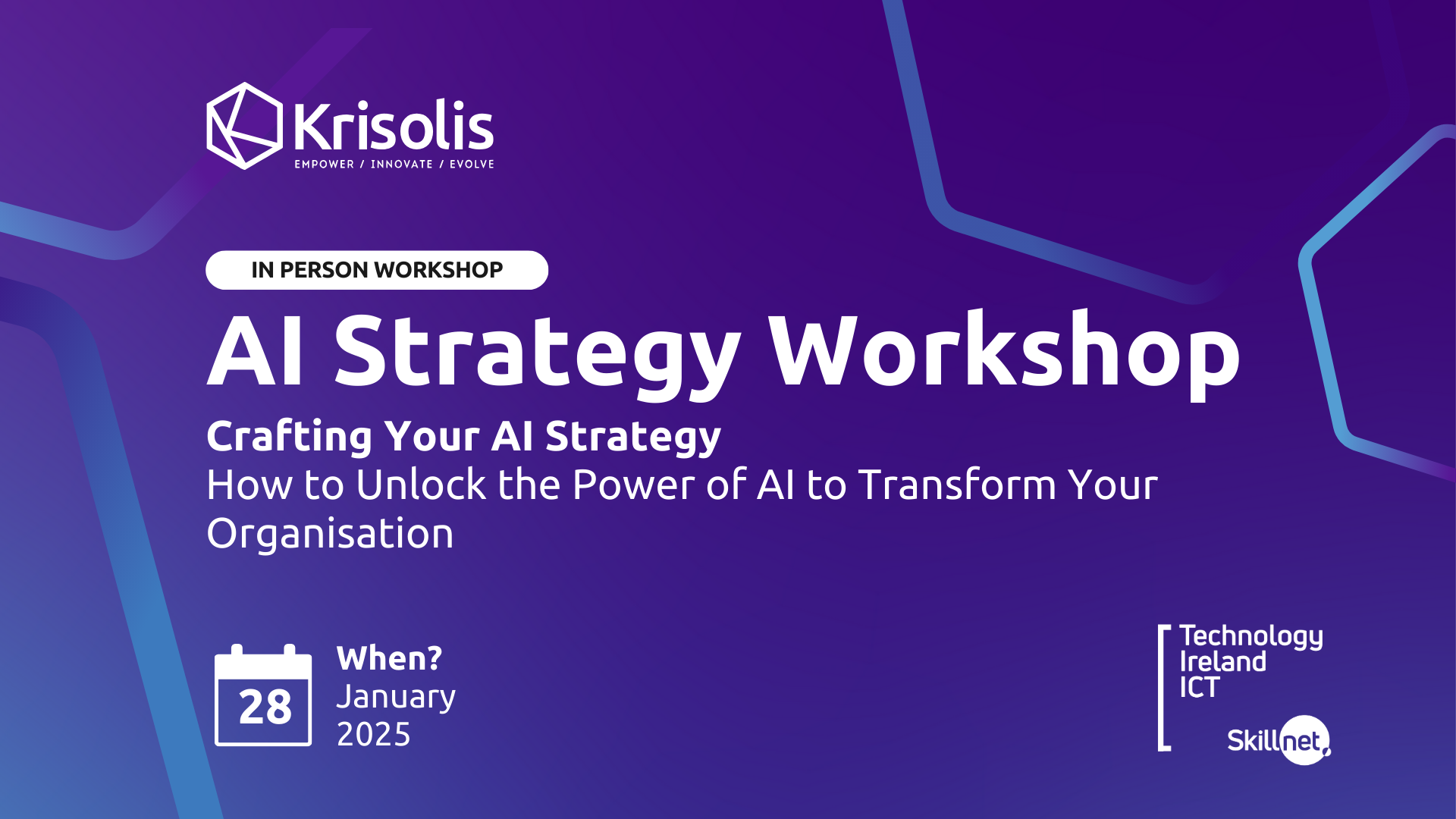Bridging the AI Skills Gap: How Business Leaders Can Stay Ahead in the Age of Intelligent Technologies

The article below is from our friends at Technology Ireland ICT Skillnet.
Artificial intelligence (AI) is no longer a distant future technology – it’s a transformative force driving change. For business leaders, understanding how to incorporate AI into their strategic planning is critical. Yet, many organisations face a significant challenge: the AI skills gap.
This AI skills gap, defined by a lack of the necessary expertise and understanding to implement AI effectively, is a key barrier preventing businesses from unlocking the full potential of AI.
The AI Skills Gap: What It Means for Businesses
The AI skills gap is more than a technical issue – it’s a strategic one. While 90% of business leaders acknowledge that AI has the potential to enhance operational efficiency, optimise decision-making, and unlock new growth opportunities, many report a lack of in-house talent to take these ideas forward.
This gap manifests in several ways:
Misalignment of business and technical teams: Businesses often fail to bridge the divide between technical AI development and real-world business needs.
Limited understanding of AI capabilities: Leaders often struggle to differentiate between hype and practical applications of AI.
Shortage of skilled professionals: Many organisations lack employees with AI expertise, from data analysis to strategic implementation.
Closing this gap starts at the top, with business leaders themselves gaining the insights and skills needed to lead their organisations confidently into the AI-driven future.

The Role of Skills Development in Driving AI Strategy
For organsations to effectively leverage AI, upskilling leadership teams is essential. By equipping leaders with a foundational understanding of AI, businesses can:
- Identify Opportunities for AI Integration: Leaders who understand AI can better spot areas where it can create value, whether it’s in customer insights, process automation, or predictive analytics.
- Align AI with Business Goals: AI projects are most successful when they are directly tied to strategic business outcomes.
- Foster a Culture of Innovation: When leadership understands and advocates for AI, it fosters an organizational mindset that embraces technological innovation.
This focus on skills development ensures that AI initiatives aren’t just technical experiments but are deeply rooted in a broader business strategy.
Why Business Leaders Should Act Now
The AI revolution is here, and businesses that fail to adapt risk falling behind. However, the journey toward AI adoption doesn’t have to be daunting. By investing in leadership training and strategic skill-building, organisations can position themselves as leaders in innovation within their industry.
Whether you’re looking to improve operational efficiency, unlock new revenue streams, or future-proof your business, understanding AI’s potential for your specific business is the first step.
Ready to kickstart your AI journey? Join us for our AI Strategy Workshop on December 10th and take the first step towards becoming AI-ready.
🔗 Book your spot now and unlock your path to smarter decision-making with AI!



